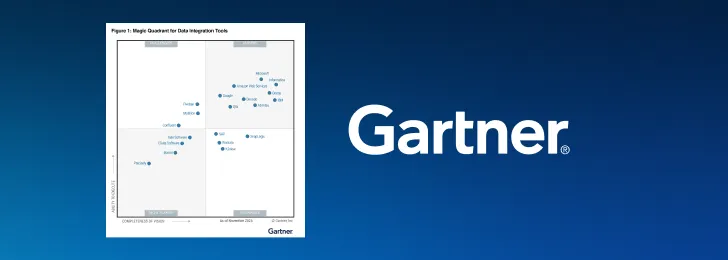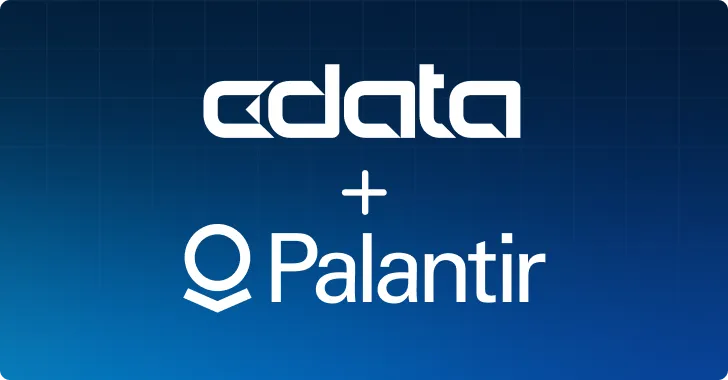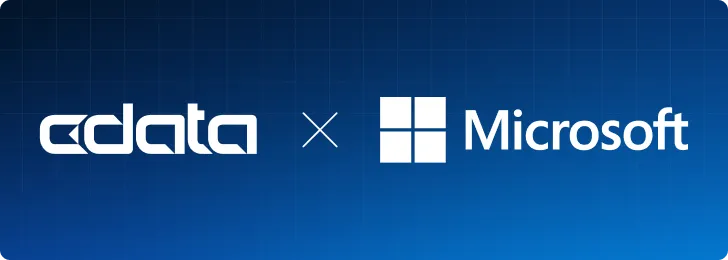
The 2020 pandemic highlighted the need for critical improvements in digital operations to prevent gaps in network coordination and patient care. Its aftermath revealed opportunities to simplify healthcare data management practices. According to a recent brief by HealthIT.gov, while healthcare system interoperability has improved in recent years, challenges still remain.
Healthcare organizations must continue adopting digital solutions to enhance administrative decisions and improve patient care. Improving healthcare data integration will be vital in supporting the need for information transparency and lower cost, coordinated care internally and across partnerships.
What is data integration in healthcare?
Healthcare data integration is the process of pulling healthcare data, including patient records, drug interactions, family history, and other information from different sources into one unified view. This gives healthcare organizations access to complete, accurate, and timely information. It helps break down data silos and improves data quality across the board. The result: Complete, informed healthcare without the guesswork. Patient outcomes are improved, and healthcare organizations save money.
Benefits of data integration in healthcare
- Reduced siloed decision-making: Integrated healthcare data provides a full picture, helping healthcare providers make more informed decisions. When all health information is available, trends and correlations are revealed that may not have been exposed otherwise. Decision-making is faster and more accurate, and patients receive more appropriate treatment.
- Enhanced interoperability: Clear, uninterrupted communication between different health systems ensures that patient data is consistent and up to date across various platforms, improving overall care quality and timely treatment.
- Improved regulatory compliance: Maintaining comprehensive records permits healthcare organizations to comply with industry standards and legal requirements more easily, avoiding potential problems and keeping patient trust.
Why is data integration important in healthcare?
Data integration is important in all data-dependent industries, but when it comes to healthcare, there’s more at stake. Efficient data integration enhances healthcare operations, improves patient outcomes, and ensures compliance with regulations. Here’s a closer look at why data integration is so vital in the healthcare sector:
- Enhanced patient care: Integrated data gives healthcare providers a holistic view of a patient's history, enabling more accurate diagnoses and personalized treatment plans. When a patient visits multiple specialists, integrated data ensures that all providers have access to the same information, preventing errors and improving care continuity. This comprehensive view allows for better-informed decisions and tailored treatment strategies, ultimately leading to better patient outcomes.
- Cost reduction: By integrating multiple sources of data, healthcare organizations can streamline operations and reduce administrative costs. Automating data entry and reducing redundancies lead to fewer manual errors and less time spent on administrative tasks, saving money and resources. Integrated data can also help identify inefficiencies in resource allocation, such as overstaffing or underutilization of equipment, enabling more cost-effective operations.
- Improved decision-making: Access to comprehensive data throughout the healthcare system allows providers to make informed decisions quickly. During a health crisis, having real-time data from various sources enables faster and more effective responses. Real-time data also supports clinical decision support systems (CDSS) that provide healthcare professionals with evidence-based recommendations at the point of care.
- Better resource management: Integrated data helps optimize the use of resources, including staff, equipment, facilities, and more. By analyzing data trends, healthcare managers can predict patient admission rates, manage inventory more efficiently, and ensure that resources are available when needed. For example, data integration can reveal patterns in patient admissions that allow hospitals to adjust staffing levels dynamically, ensuring that there are enough healthcare professionals during peak times without overstaffing during quieter periods.
- Enhanced regulatory compliance: Maintaining integrated and accurate records helps healthcare organizations meet regulatory requirements more easily. Integrated data systems can automatically update compliance-related information, reducing non-compliance risk and potential penalties. These systems can also facilitate audits by providing comprehensive, easily accessible records, simplifying the process of confirming compliance with regulations.
4 Challenges of healthcare data integration
While the benefits of healthcare data integration are significant, a few challenges can get in the way of a successful implementation:
- Data incompatibility: Different healthcare systems often use varying formats and standards, complicating data integration efforts. Healthcare organizations may struggle to ensure that data from multiple sources can be accurately combined and interpreted. Overcoming this challenge requires adopting universal standards and using middleware or conversion tools that can bridge the differences. Additionally, legacy systems that are still in use may not support modern data standards, which then require investments in technology upgrades.
- Implementation difficulties: Setting up an integrated data system requires substantial time and resources. Healthcare organizations need to invest in the right technology and train their staff to use new systems effectively. The implementation process can be disruptive, often requiring significant changes to existing workflows and practices. Organizations may face resistance from staff who are accustomed to old systems and hesitant to adopt new technologies. Ensuring adequate support and training during the transition is crucial for overcoming these difficulties and achieving a smooth implementation.
- Workflow complexity: Integrating data can add complexity to existing workflows. Healthcare providers must balance the need for comprehensive data access with the need to maintain efficient and straightforward processes. This might involve redesigning processes, implementing user-friendly interfaces, and providing adequate training to ensure that healthcare professionals can efficiently use the integrated systems without added burdens.
- Data security: Ensuring the security of integrated data is vital to protect patient information. Organizations must implement robust security measures to prevent data breaches and maintain patient confidentiality. This includes encryption, secure access controls, regular security audits, and compliance with applicable regulations, like HIPAA (Health Insurance Portability and Accountability Act). Implementing multi-factor authentication, continuous monitoring for suspicious activities, and having an incident response plan in place are critical steps to safeguard integrated data. Educating staff on data security best practices can also help mitigate risks associated with human error.
Healthcare data integration standards and best practices
Healthcare organizations can achieve a more seamless and secure data integration process, enhancing overall operational efficiency and patient care by adopting standards and best practices:
- Ensure data privacy and security: Protecting patient information is critical for full HIPPA compliance. Implement robust security measures such as encryption, access controls, and regular audits to safeguard data. Adopting multi-factor authentication (MFA) can further enhance security by requiring multiple forms of verification before accessing sensitive information.
- Map your data landscape: Knowing where data resides and how it flows within your organization is essential to proper healthcare data management. Identify all data sources, such as electronic health records (EHRs), laboratory information systems (LIS), radiology information systems (RIS), and other ancillary systems. Mapping out how these data sources interact and relate to each other can reveal inefficiencies and bottlenecks in the data flow, which will help streamline healthcare data integration.
- Standardize data formats: Industry-standard data formats and protocols ensure compatibility between different healthcare systems, simplify data exchange, and reduce the risk of errors. Standards such as HL7, FHIR (Fast Healthcare Interoperability Resources), and DICOM (Digital Imaging and Communications in Medicine) provide frameworks for data interchange. CData Arc supports all HIPAA-compliant healthcare EDI (Electronic Data Interchange) and FHIR file formats, automating the translation and exchange of insurance claims, EOB (explanation of benefits), and other critical documents.
- Invest in interoperability: Ensure that systems can communicate and exchange data seamlessly. Use technologies and platforms that support healthcare interoperability, such as middleware solutions, application programming interfaces (APIs), and health information exchanges (HIEs). Middleware acts as a bridge between disparate systems, enabling them to share data without requiring direct connections. APIs provide a standardized way for applications to interact, making integrating new systems and applications easier. HIEs facilitate the secure sharing of health information across different organizations, improving care coordination and patient outcomes.
- Train staff effectively: Provide comprehensive training for staff to ensure they understand how to use integrated systems efficiently. This includes technical training on the specific software and systems your organization uses and education on data privacy and security practices. Effective training programs should be ongoing, with regular updates to address new technologies and evolving best practices. Also, fostering a continuous learning culture and encouraging staff to stay current with industry trends can enhance their ability to adapt to new tools and processes.
- Enforce data governance: Establish and maintain a robust data governance framework to oversee data management practices. Data governance includes setting policies and procedures for data quality, management, and access. This ensures that data is accurate, consistent, and used appropriately across the organization. Define roles and responsibilities for data stewardship, establish standards, and implement quality controls. Regularly reviewing and updating governance policies can help address emerging challenges and maintain alignment with regulatory requirements.
- Engage stakeholders: Involve all relevant stakeholders in the data integration process, including clinical staff, IT professionals, administrators, and even patients. Engaging stakeholders ensures that their needs and perspectives are considered, leading to more effective and user-friendly solutions. Regular communication and collaboration among stakeholders can facilitate buy-in and support for integration initiatives. Creating a steering committee or working group to oversee the integration process can also provide valuable guidance and ensure that the project stays on track.
Healthcare data integration use cases
Healthcare data integration has numerous practical applications that can significantly enhance the efficiency and quality of patient care. Here are some key use cases:
- Proactive fraud detection: Integrated data systems can identify unusual patterns and flag potential fraud, helping organizations prevent fraudulent activities before they escalate. For instance, integrated billing data can reveal inconsistencies that might indicate fraudulent claims, like unusually high numbers of specific treatments or discrepancies between claimed services and patient records.
- Patient-centric care: Having a unified view of patient data enables healthcare providers to offer more personalized and effective treatment plans, improving patient outcomes and satisfaction. This approach ensures that all healthcare providers involved in a patient's care have access to the same comprehensive information, reducing the risk of conflicting treatments and ensuring continuity of care across different medical specialties.
- Enhanced crisis response: During health crises, integrated data allows for quick and efficient access to crucial information, enabling faster and more coordinated responses. For example, during an outbreak, integrated data can help track the spread of the disease and manage resources, such as directing medical supplies and personnel to infection hotspots more accurately.
- Population health management: Analyzing integrated data helps in understanding health trends and outcomes across different population segments, allowing for better-targeted public health interventions. This can lead to more effective prevention programs and resource allocation, including identifying high-risk groups for specific conditions and implementing targeted screening and vaccination campaigns.
- Streamlined operations: Integrated data systems reduce administrative burdens by automating processes and ensuring accurate data exchange, leading to more efficient operations and cost savings. This can reduce duplicate tests, minimize paperwork, improve communication between departments to streamline workflows, and free up healthcare providers so they can focus more on patient care rather than administrative tasks.
Embrace healthcare data integration with CData
CData Arc can give your healthcare organization the tools it needs to overcome integration challenges and streamline data management.
Explore CData Arc today
Tour the user-friendly interface to learn how your business can benefit from CData Arc.





